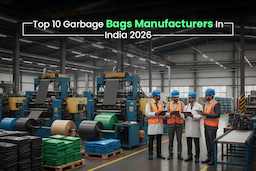February 22, 2024
Contract Manufacturing Advantages: A Comprehensive Guide


Contract manufacturing is growing a lot, especially in the Asia-Pacific area. Industries like electronics and pharmaceuticals are driving this growth. The global market is expected to grow by 5.3% each year from 2021 to 2030.
Along with the rising demand for custom goods and services, this trend shows how contract manufacturing can help save money and spark new ideas.
Companies can reach their goals, meet their needs, and keep the high standards they want when they work with makers to outsource production. The contract manufacturer produces the goods, tests them, and sends them to the purchasers.
Contract manufacturing vs. Traditional manufacturing (OEM)
Businesses often contemplate between contract manufacturing and OEM. They look at cost, control, and speed. A survey asked this to 163 industry professionals, and 85% chose contract manufacturing. Businesses aim to use resources better and want to focus on core tasks.
Contract manufacturing improves quality and brings new ideas. OEM offers more control and protects intellectual property. However, OEMs cost more and need to be more flexible. This shows contract manufacturing meets market needs and supports industry growth.


Outsourcing Manufacturing: Benefits
Last year, Apple started to make 12 billion iPhones in India. They focused on buying parts locally and making assembly better. Outsourcing manufacturing is getting more common. This way, they save money and get other big benefits, too.
- Proximity to End Customers: McKinsey has found less international shipping of products now. More goods are being made and sold locally, especially in growing markets. A good example is how semiconductor chips are made in Asia for local customers. This helps cut down on shipping costs and makes delivery faster.
- Operational Savings: By outsourcing, firms can close or make their local plants smaller. This lets them focus more on research and development and helping customers. It also cuts operation and ownership costs.
- Access to Raw Materials: Costs can go down for local manufacturers close to the source of raw materials. This is helpful for fields that need a lot of different materials, like the semiconductor industry.
- Specialized Suppliers: Dedicated suppliers are available in manufacturing hubs such as Asia. Local manufacturing makes precision equipment and technology more affordable.
- Product Development Expertise: Some countries are popular for contract manufacturing. For instance, Malaysia is an expert in electronics. It helps big companies like GE and Siemens produce faster and cheaper goods.
- Specialized Personnel and Equipment: Outsourcing allows access to special machines. It helps hire skilled people for short jobs. This means we don’t need temporary workers. We also don’t need to buy expensive equipment.
- Ease of Product Movement: Contract Manufacturers who know trade laws can move products easily between countries. This lowers the risk of legal problems.
Advantages of partnering with a contract manufacturer
In 2023, Intel partnered with eight companies in India to make laptops locally. They did this for a few smart reasons:
- Saving Money: Making things in India costs less because the workers and materials are cheaper. Intel doesn’t have to spend much money setting up its factories.
- Making Better Laptops: By working with these Indian companies, which are good at what they do, Intel can ensure their laptops are of high quality and get to customers without delay.
- Reaching More People: Intel is also changing some of their laptops so they can sell them in India and other new places where people are looking for good, affordable technology.
- Making things this way helps Intel save money, make better products, and sell to more people worldwide. It’s a clever plan to grow their business and develop new ideas.


Best practices for risks and compliance management
Your Request for Proposal (RFP) is very important when choosing a contract manufacturer. It helps you pick the best one by looking at their services, financial health, tech skills, and legal compliance. Make sure they have a strong history of success, know what they are best at, and can handle your project’s tech needs. Be careful about risks, like protecting your ideas and checking all legal details.
Final words
Companies can now choose where to make their products worldwide. This use of special skills and cost cuts has made manufacturing global. China is a big player in electronics and consumer goods. Southeast Asia, Eastern Europe, and Latin America are also important. The choice depends on labour costs, infrastructure, and how stable a place is.
To navigate the global manufacturing shift, learn more about partnering with contract manufacturers through insights from Moglix.




